Why North Korea is ramping up its missile tests
The nation has conducted 14 weapons tests so far this year

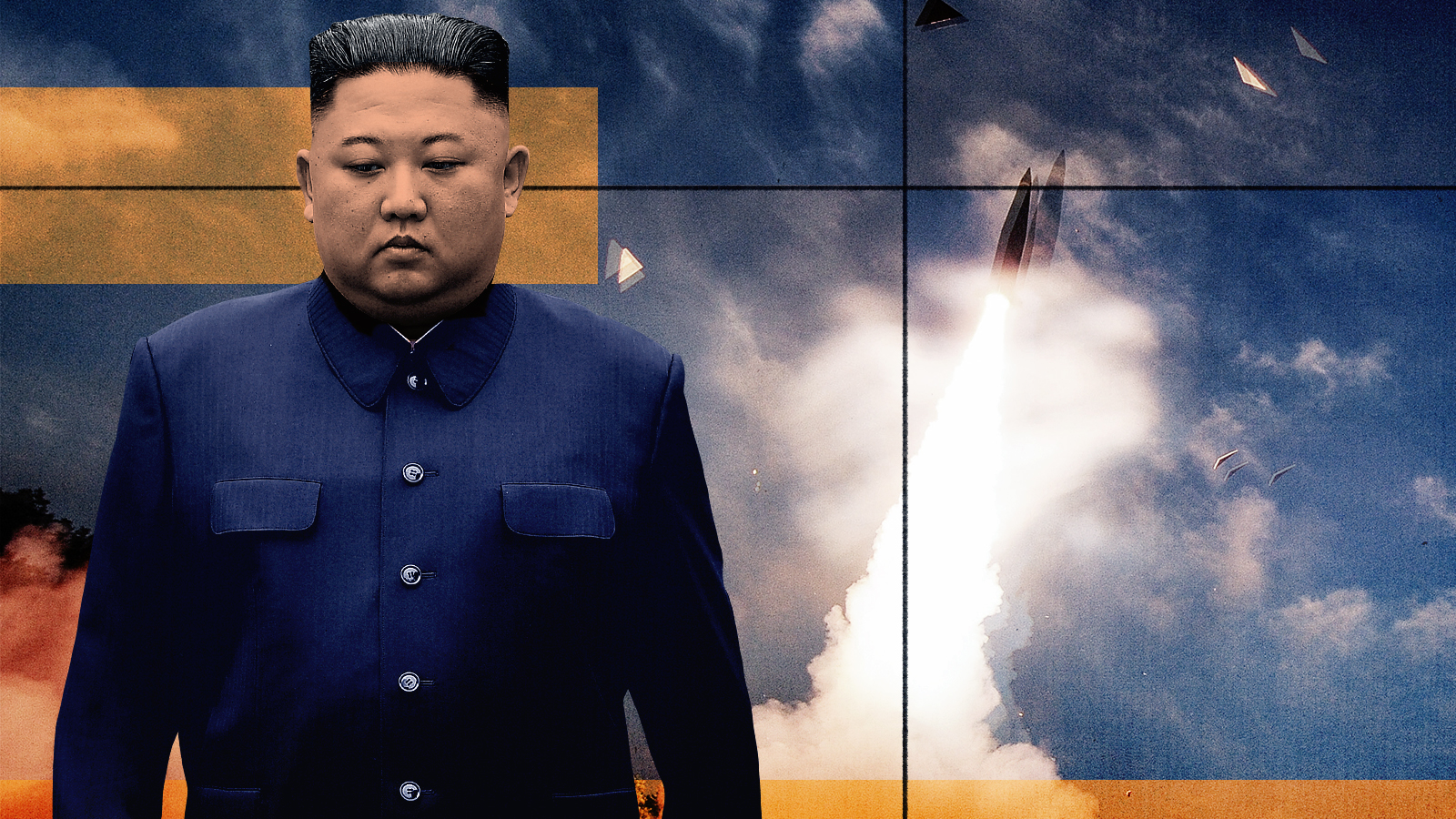
A free daily email with the biggest news stories of the day – and the best features from TheWeek.com
You are now subscribed
Your newsletter sign-up was successful
In late April, North Korean leader Kim Jong Un said he was taking steps "to strengthen and develop our nation's nuclear capabilities at the fastest pace," and warned he could preemptively use these weapons if he felt threatened. North Korea has conducted 14 weapons tests so far this year, with experts believing the latest launch on Wednesday was timed for the upcoming inauguration of South Korea's new president, as well as a way to get the attention of the United States. Here's everything you need to know:
What did North Korea test during its latest launch?
On Wednesday, North Korea launched a ballistic missile toward its eastern waters; it went about 310 miles, reaching an altitude of roughly 500 miles. This move was quickly condemned by the United States, Japan, and South Korea's Joint Chiefs of Staff, which called North Korea's surge in testing "a grave threat" that undermines international peace and security and violates U.N. Security Council resolutions that ban the country from conducting ballistic launches.
How many and what kind of weapons does North Korea have?
The Nuclear Threat Initiative, a nonprofit, nonpartisan global security organization, estimates that North Korea's current nuclear warhead stockpile is between 25 and 50, with the country able to produce enriched uranium and weapons-grade plutonium. Since January, North Korea has conducted hypersonic, short-range, intermediate-range, and long-range intercontinental ballistic missile tests, BBC News reports, with the Hwasong-14 missile having a potential range of about 5,000 miles, putting the U.S. mainland within reach. During a military parade in January 2021, North Korea debuted a new type of submarine-launched ballistic missile, calling it the "world's most powerful weapon."
The Week
Escape your echo chamber. Get the facts behind the news, plus analysis from multiple perspectives.

Sign up for The Week's Free Newsletters
From our morning news briefing to a weekly Good News Newsletter, get the best of The Week delivered directly to your inbox.
From our morning news briefing to a weekly Good News Newsletter, get the best of The Week delivered directly to your inbox.
Why is North Korea conducting so many weapons tests this year?
Experts believe there are several reasons for this. First, Kim wants to have an advanced and well-established nuclear arsenal. Observers believe that his goal is to get North Korea recognized as a nuclear state, using that leverage to force the United States into restarting talks and granting sanctions relief. Additionally, Kim wants to send a message to South Korea's incoming president, Yoon Suk-yeol. A conservative who said he will take a hardline approach when dealing with North Korea, Yoon will be inaugurated on May 10, and will serve one five-year term. South Korea's outgoing president, Moon Jae-in, has promoted engagement between the countries, and during his term met with Kim three times.
What has Yoon Suk-yeol said about North Korea?
He has called North Korea the "main enemy" of South Korea and said he will increase his country's missile defenses in response to Kim's provocations. In January, Yoon declared that if "North Korea tries to fire a nuclear missile, it means that we are already in a state of war. Then we should show we are capable of and willing to strike missile bases and commanders who ordered fire ... to prevent such reckless attacks."
After his election, he spoke with The Washington Post about South Korea's current administration, saying it "placed too much emphasis on the relationship with North Korea alone," to the detriment of other international relations. Yoon also said as president, he will provide humanitarian aid to North Korea "at any time," and if Pyongyang "abides to international rules," he will "start an economic development support program for North Korea."
What has been the U.S. reaction to North Korea's recent tests?
U.S. Ambassador to the U.N. Linda Thomas Greenfield told reporters on Tuesday that the United States has circulated a draft resolution to the U.N. Security Council seeking additional sanctions against North Korea, and the plan is to "move forward with that resolution during this month." Russia and China both have veto power in the Security Council, and several diplomats told The Associated Press the countries are asking for sanctions against North Korea to be eased rather than tightened.
A free daily email with the biggest news stories of the day – and the best features from TheWeek.com
President Biden is traveling to South Korea and Japan later this month, and White House Press Secretary Jen Psaki told reporters on Thursday that he will speak with those leaders about North Korea's nuclear and missile programs.
When was North Korea's last underground nuclear test?
It has been almost five years since North Korea conducted an underground nuclear test. On Thursday, CNN reported that U.S. military and intelligence agencies have seen signs of personnel and vehicle activity at North Korea's Punggye-ri nuclear test site, and preparations could be underway for an underground nuclear test by the end of May; if there is one, it will be the seventh time North Korea has carried out an underground nuclear test. The U.S. keeps an eye on Punggye-ri through satellite imagery, three U.S. officials told CNN, but it's not clear if nuclear material has been placed inside one of the site's underground tunnels.
Catherine Garcia has worked as a senior writer at The Week since 2014. Her writing and reporting have appeared in Entertainment Weekly, The New York Times, Wirecutter, NBC News and "The Book of Jezebel," among others. She's a graduate of the University of Redlands and the Columbia University Graduate School of Journalism.
-
 The Olympic timekeepers keeping the Games on track
The Olympic timekeepers keeping the Games on trackUnder the Radar Swiss watchmaking giant Omega has been at the finish line of every Olympic Games for nearly 100 years
-
 Will increasing tensions with Iran boil over into war?
Will increasing tensions with Iran boil over into war?Today’s Big Question President Donald Trump has recently been threatening the country
-
 Corruption: The spy sheikh and the president
Corruption: The spy sheikh and the presidentFeature Trump is at the center of another scandal
-
 Did Trump just end the US-Europe alliance?
Did Trump just end the US-Europe alliance?Today's Big Question New US national security policy drops ‘grenade’ on Europe and should serve as ‘the mother of all wake-up calls’
-
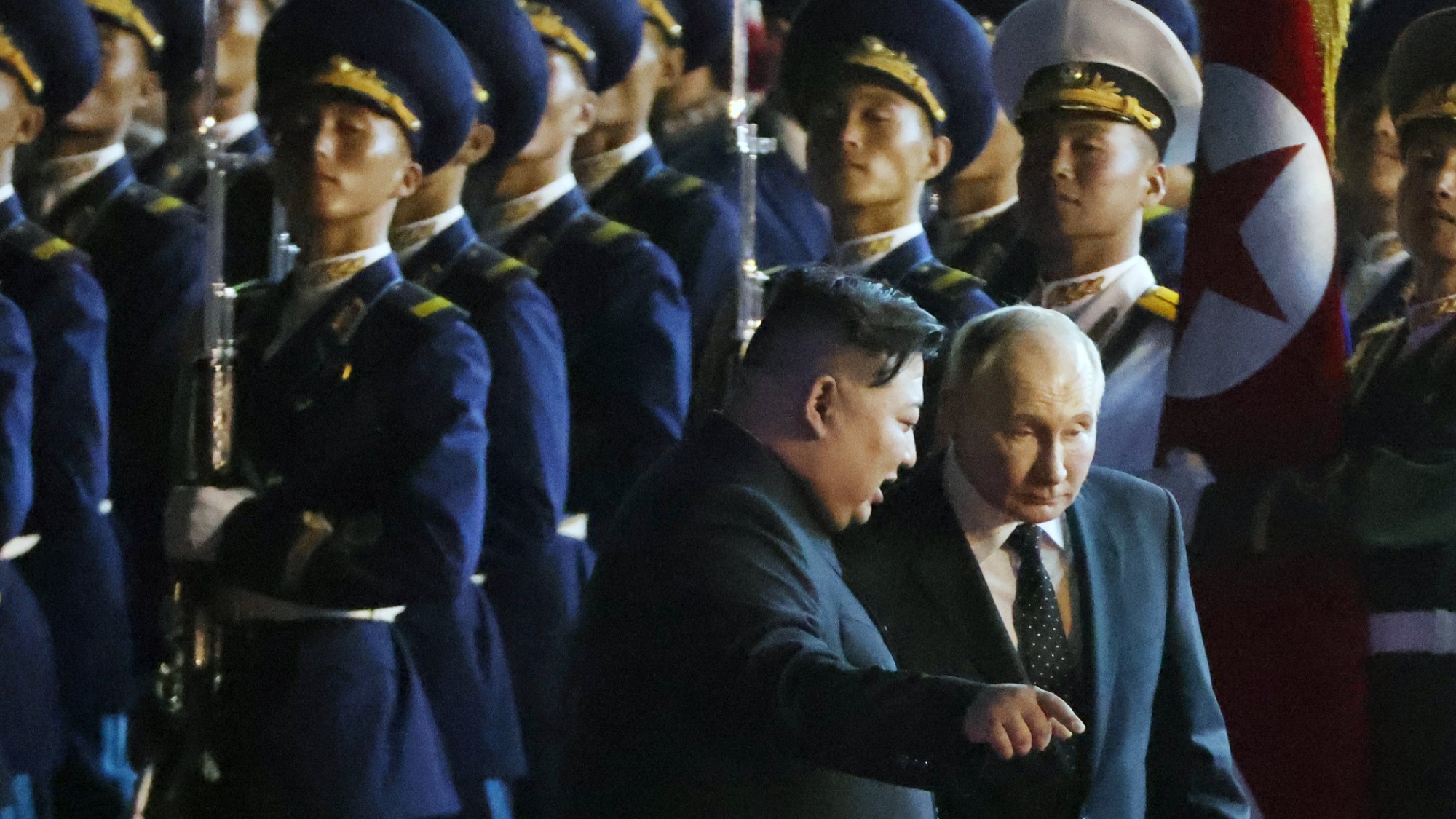 The North Korean troops readying for deployment in Ukraine
The North Korean troops readying for deployment in UkraineThe Explainer Third country wading into conflict would be 'the first step to a world war' Volodymyr Zelenskyy has warned
-
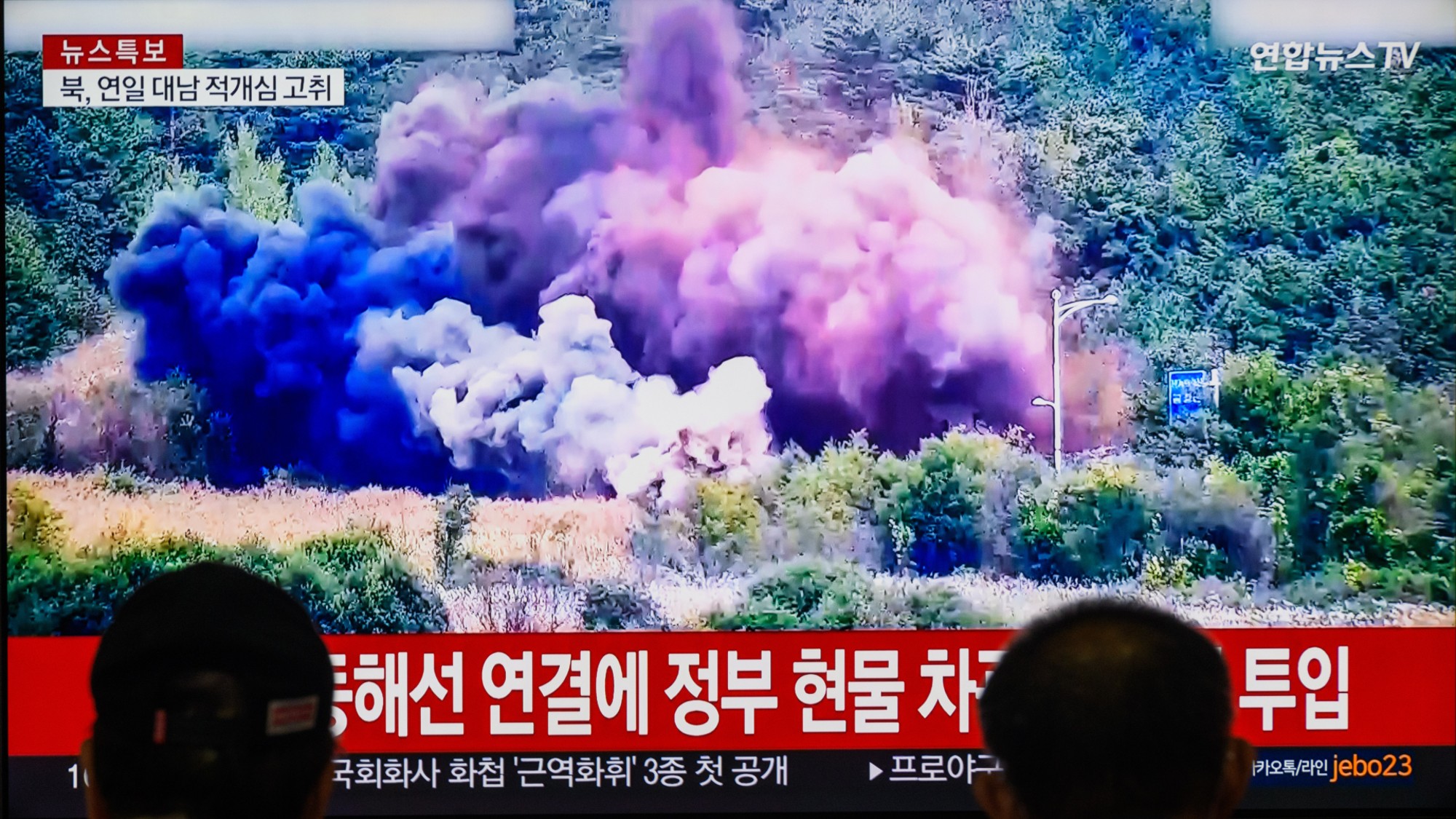 What's happening at the North Korea border?
What's happening at the North Korea border?The Explainer Tensions rise as hermit kingdom blows up 'symbolic' roads after accusing Seoul of flying drones over Pyongyang
-
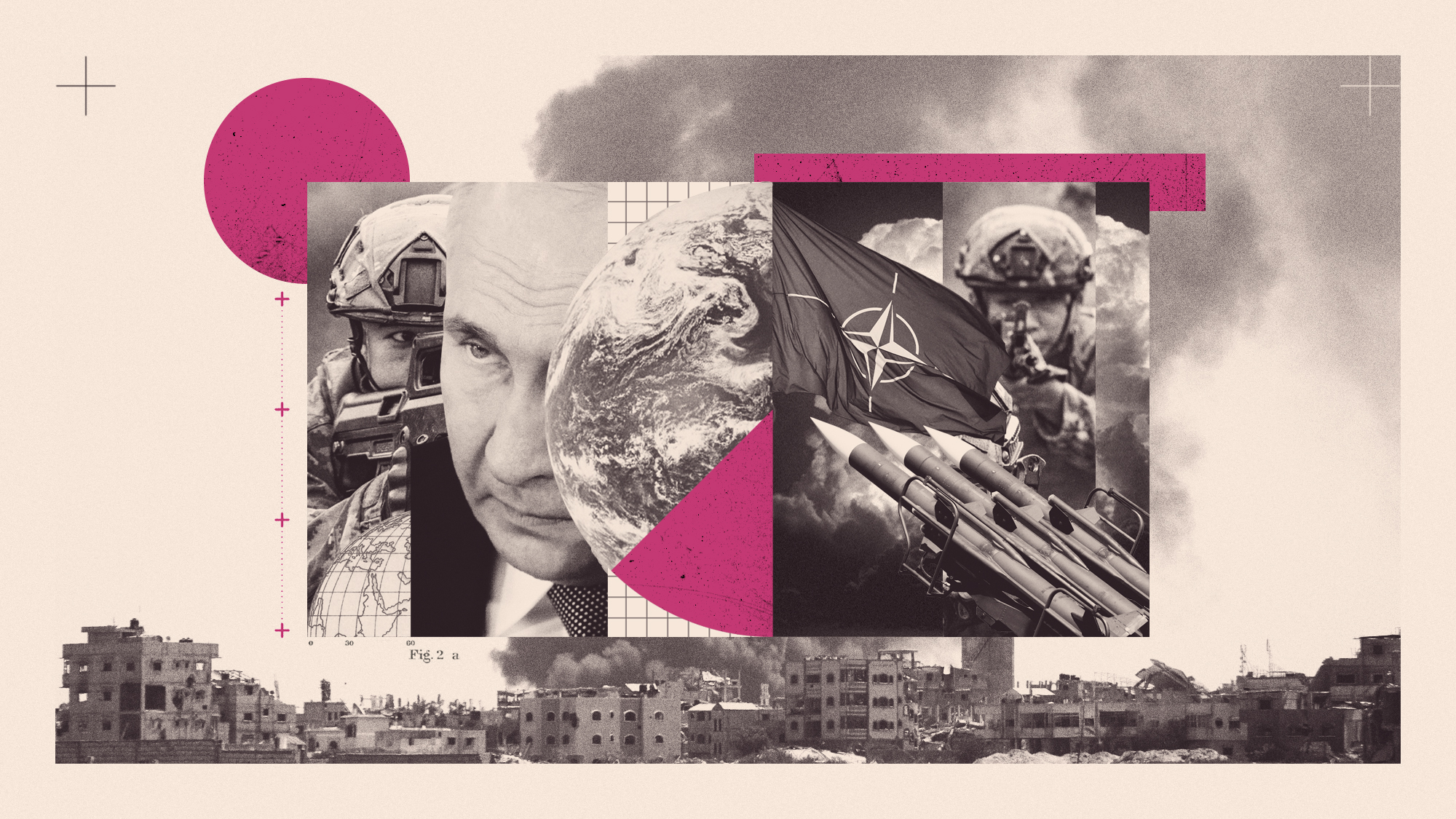 How would we know if World War Three had started?
How would we know if World War Three had started?In depth Most of us probably won’t realise that we are in a global conflict – at first
-
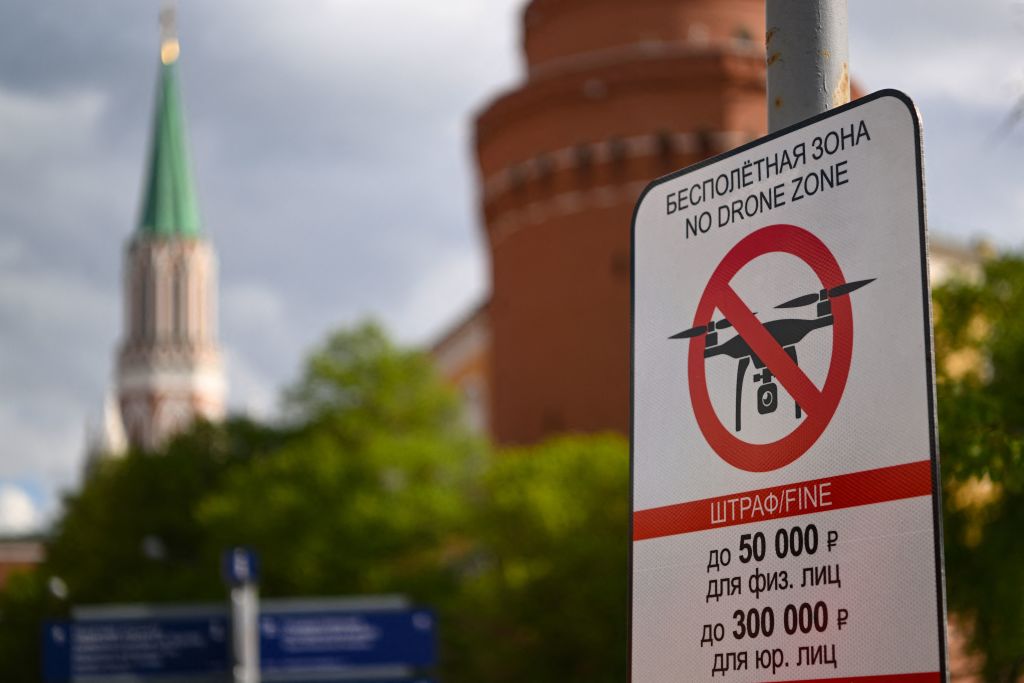 Did Ukraine orchestrate the Kremlin drone strike?
Did Ukraine orchestrate the Kremlin drone strike?Speed Read If Kyiv isn't behind the humiliating attack, who is?
-
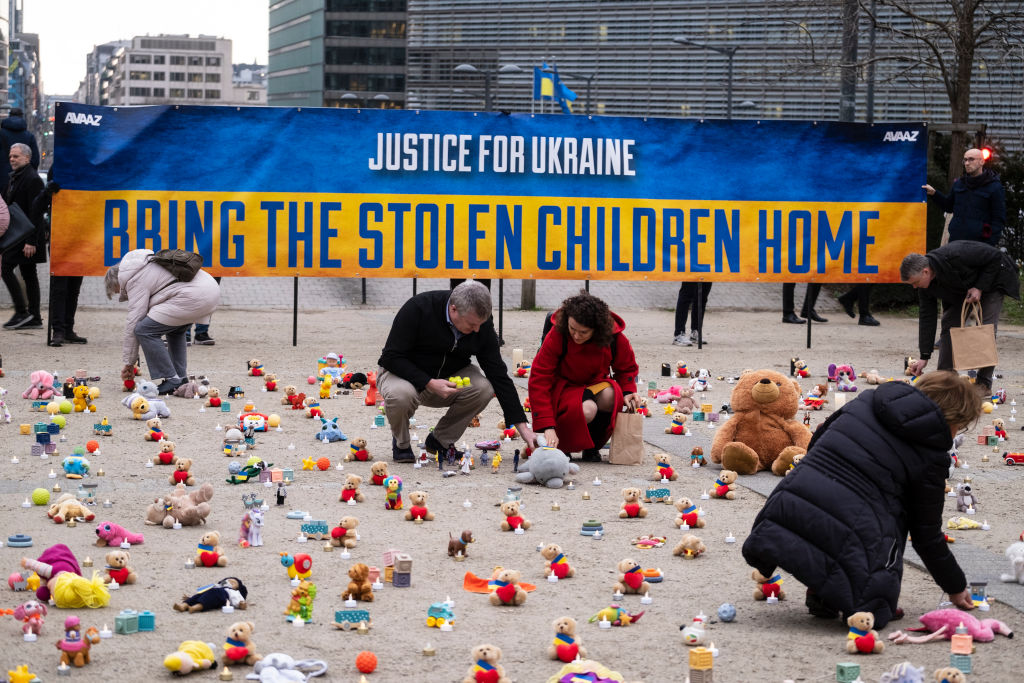 Stealing Ukraine's children
Stealing Ukraine's childrenSpeed Read Vladimir Putin has been charged with war crimes for abducting thousands of Ukrainian children. Why is he doing this?
-
 Russia's shadow army
Russia's shadow armySpeed Read The Wagner Group, accused of numerous war crimes, has sent tens of thousands of mercenaries to fight in Ukraine
-
 The F-35 fighter jet's troubled history
The F-35 fighter jet's troubled historySpeed Read Why 'the most expensive weapon in human history' still can't get off the ground
